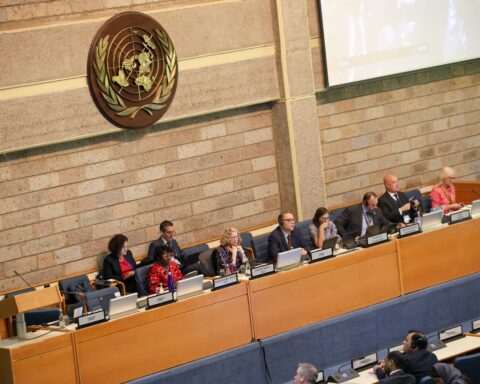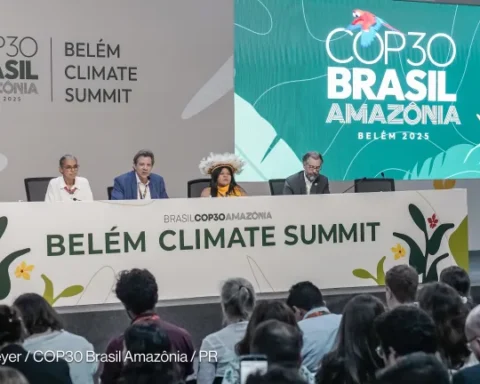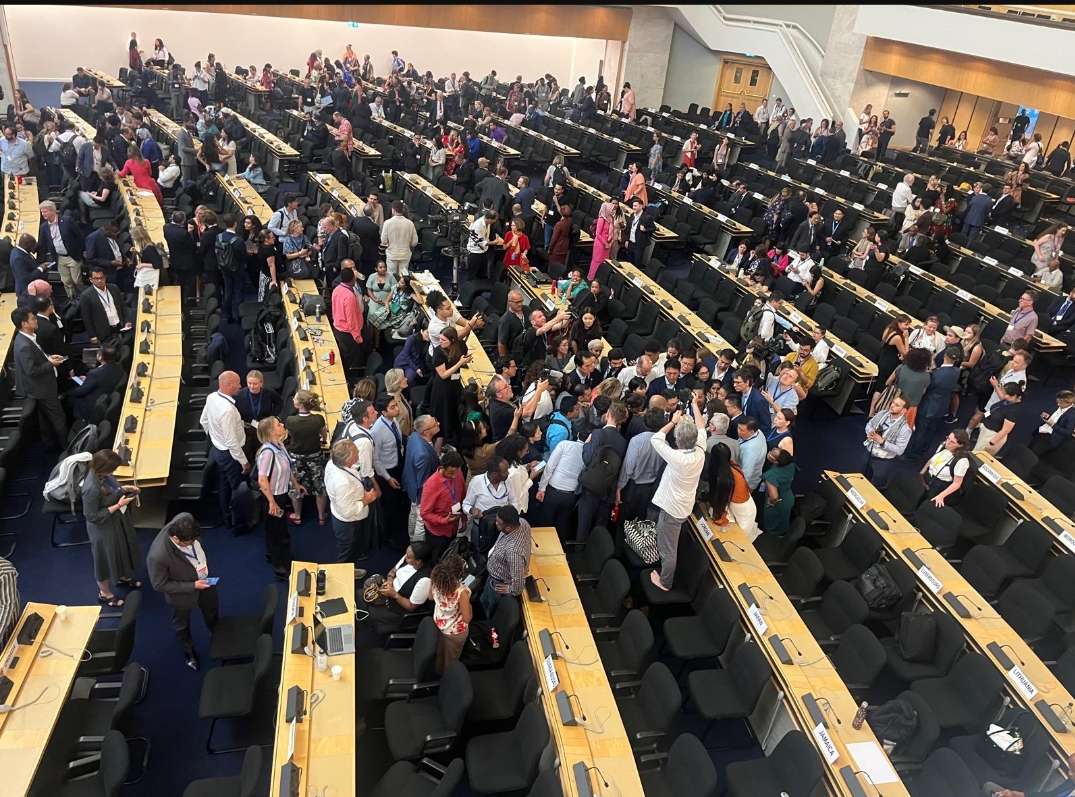After ten days of intense negotiations in Geneva, the resumed fifth session of the Intergovernmental Negotiating Committee (INC-5.2) on developing a legally binding international instrument to end plastic pollution adjourned in the early hours of Friday 15 August without consensus on a treaty text.
The outcome leaves the timeline for the historic agreement uncertain, even as plastic pollution continues to choke oceans, rivers, and communities worldwide with Africa among the most vulnerable to its economic and environmental impacts.
More than 2,600 participants converged on the Palais des Nations for the session, including over 1,400 delegates from 183 countries, nearly 1,000 observers representing 400 organizations, and 70 Ministers and Vice Ministers.
The high-level gathering underscored both the urgency and complexity of the negotiations, which grappled with contentious issues such as plastic production caps, chemicals of concern, financing, and compliance mechanisms.
Despite late-night discussions that stretched beyond Thursday’s deadline, divisions among member states proved insurmountable.
“This has been a hard-fought 10 days against the backdrop of geopolitical complexities, economic challenges, and multilateral strains. However, one thing remains clear: despite these complexities, all countries clearly want to remain at the table,” said Inger Andersen, Executive Director of the UN Environment Programme (UNEP).
Andersen stressed that the absence of a final text should not slow momentum.
“While we did not land the treaty text we hoped for, UNEP will continue the work against plastic pollution pollution that is in our groundwater, in our soil, in our rivers, in our oceans and yes, in our bodies.”
The Geneva session built on a Chair’s Text from INC-5.1 in Busan, with subsequent Draft and Revised Text Proposals tabled during the talks.
The structured process moved from plenary sessions to four specialized contact groups, followed by stocktaking and informal consultations. But despite “intensive engagement,” the Committee could not bridge deep policy and technical differences.
INC Chair, Ambassador Luis Vayas Valdivieso, acknowledged the disappointment but urged perseverance.
“Failing to reach the goal we set for ourselves may bring sadness, even frustration. Yet it should not lead to discouragement. On the contrary, it should spur us to regain our energy, renew our commitments, and unite our aspirations.”
The negotiation process began in March 2022, when the UN Environment Assembly (UNEA-5.2) adopted a landmark resolution to create an international legally binding instrument on plastic pollution, including in the marine environment.
Since then, sessions have been held in Uruguay, France, Kenya, Canada, and the Republic of Korea, with Geneva marking the latest chapter.
According to Jyoti Mathur-Filipp, Executive Secretary of the INC Secretariat, the work ahead remains formidable.
“As this session concludes, we leave with an understanding of the challenges ahead and a renewed and shared commitment to address them. Progress must now be our obligation,” he said.
Civil society groups were active throughout INC-5.2, staging protests, art installations, press briefings, and side events. Indigenous peoples, youth, waste pickers, artists, and scientists used the platform to demand a treaty that addresses not only environmental damage but also social justice, health risks, and the livelihoods of those working at the front lines of waste management.
African delegates, many representing countries disproportionately affected by marine and plastic pollution, stressed that delays in securing a treaty could have far-reaching consequences for fisheries, tourism, and public health.
Without strong global measures, they warned, the continent’s coastal and riverine ecosystems face irreversible harm.
While no new date has been set for the next round of talks, negotiators are expected to reconvene to try again to secure an agreement.
For now, the challenge remains balancing environmental urgency with political consensus a task that will determine whether the world can turn the tide against plastic pollution before it is too late.
By Dare Akogun







